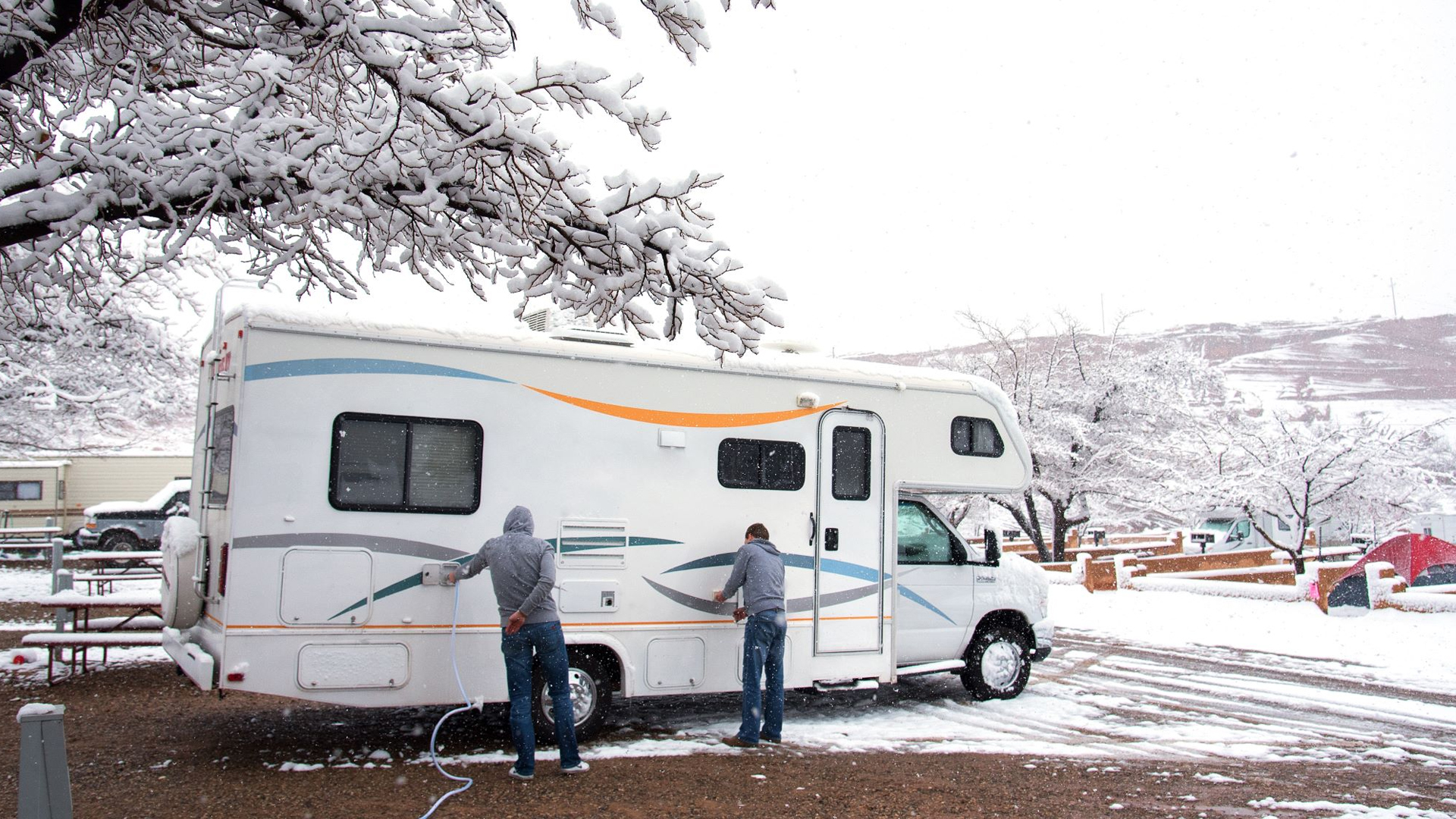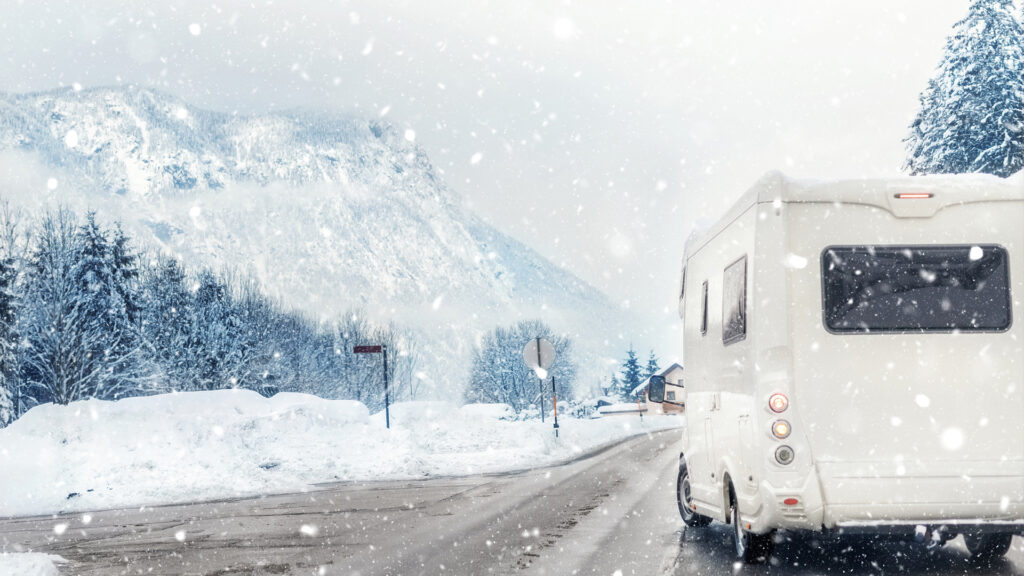
Top 5 Best RV Antifreeze Products for Winter Protection
Table of contents
When winter approaches, one of the most critical tasks for RV owners is preparing their vehicles for the cold. Protecting your RV’s plumbing system from freezing temperatures is essential to avoid costly repairs and ensure your RV is ready for the next adventure. This is where choosing the best RV antifreeze comes into play. But what is RV antifreeze exactly? And is RV antifreeze toxic? These are important questions to consider when safeguarding your RV. With a wide variety of options on the market, it’s crucial to choose the right antifreeze for RV to prevent damage and keep your system safe. Additionally, using non-toxic antifreeze is vital, especially when dealing with potable water systems.
Understanding RV Antifreeze Basics

What is RV Antifreeze?
RV antifreeze is a specially formulated liquid designed to prevent the water in your RV’s plumbing system from freezing during cold weather.
Propylene Glycol vs. Ethanol-Based Antifreeze
There are two main types of RV antifreeze: propylene glycol-based and ethanol-based.
- Propylene Glycol Antifreeze: This type is the most common and preferred by many RV owners because it is a non-toxic antifreeze. It’s safe to use in potable water systems, which means it won’t harm you if a small amount is ingested. Additionally, it offers lubrication for seals and gaskets, helping to prolong the life of your plumbing system.
- Ethanol-Based Antifreeze: This type is generally less expensive but can be more toxic and flammable. While it’s effective at preventing freezing, it doesn’t offer the same level of safety or protection for your plumbing system. It’s less commonly recommended for RVs, especially those with drinking water systems.
Is RV Antifreeze Toxic?
The answer depends on the type of antifreeze you choose. Non-toxic antifreeze, typically made from propylene glycol, is safe for use in systems that come into contact with drinking water. It’s important to avoid using automotive antifreeze or ethanol-based products in your RV’s plumbing, as these can be harmful if ingested.
Top 5 Best RV Antifreeze Products
Choosing the right RV antifreeze can make a significant difference in how well your RV is protected during the winter.
1. PEAK OET RV Antifreeze
PEAK OET RV Antifreeze is a top choice for RV owners looking for reliable winter protection. This non-toxic antifreeze is formulated with propylene glycol, making it safe for use in potable water systems. It offers excellent freeze protection down to -50°F, ensuring your plumbing system stays intact even in extreme cold.
Key Features:
- Non-toxic and safe for drinking water systems
- Freeze protection down to -50°F
- Lubricates seals and gaskets
- Biodegradable and environmentally friendly
Pros:
- Safe for all RV plumbing systems
- High level of freeze protection
- Environmentally conscious formula
Cons:
- Slightly more expensive than ethanol-based alternatives
2. Champion Pool Antifreeze
Champion Pool Antifreeze is another excellent option, particularly for those looking for versatility. This product can be used not only in RVs but also in pools and other water systems. It’s an ethanol-based antifreeze, providing reliable freeze protection.
Key Features:
- Effective in temperatures down to -50°F
- Versatile use for RVs, pools, and water lines
- Safe for all types of pipes, including PVC, CPVC, and copper
Pros:
- Multi-purpose use
- Affordable and effective
- Easy to find at most hardware stores
Cons:
- Ethanol-based, which may be more toxic and less safe for potable water systems
3. RecPro RV Antifreeze
RecPro RV Antifreeze is a favorite among RV enthusiasts for its combination of safety and effectiveness. This non-toxic antifreeze is made from propylene glycol, ensuring it’s safe for your drinking water system.
Key Features:
- Non-toxic, propylene glycol formula
- Freeze protection down to -50°F
- Lubricates and protects seals and gaskets
- Ready-to-use formula, no mixing required
Pros:
- Safe for potable water systems
- Provides excellent freeze protection
- Easy to use with no mixing needed
Cons:
- Higher price point compared to ethanol-based options
4. Splash RV Antifreeze
Splash RV Antifreeze is known for its affordability and reliable performance. This antifreeze provides freeze protection down to -50°F and is a popular choice among RV owners on a budget.
Key Features:
- Freeze protection to -50°F
- Ethanol-based formula
- Widely available and budget-friendly
- Can be used in various water systems
Pros:
- Cost-effective
- Widely available
- Effective freeze protection
Cons:
- Ethanol-based, which may not be ideal for potable water systems
- Flammable and potentially toxic
5. Garden at Home RV/Waterline Antifreeze
Garden at Home RV/Waterline Antifreeze is a propylene glycol-based product that offers non-toxic protection for your RV’s plumbing. It’s designed to be environmentally friendly and safe for use in drinking water systems.
Key Features:
- Non-toxic, propylene glycol formula
- Safe for drinking water systems
- Freeze protection to -50°F
- Biodegradable and environmentally safe
Pros:
- Safe for all water systems, including drinking water
- High level of freeze protection
- Environmentally friendly and biodegradable
Cons:
- Higher price compared to ethanol-based antifreeze
Factors to Consider When Choosing RV Antifreeze

When selecting the best RV antifreeze for your vehicle, it’s important to consider several key factors to ensure you make the right choice.
Temperature Resistance Rating
One of the most critical factors is the temperature resistance rating. The best RV antifreeze products typically offer protection down to at least -50°F. Make sure to choose a product that can handle the coldest temperatures you expect to encounter.
Safety and Non-Toxicity
If you’re using antifreeze in your RV’s potable water system, it’s crucial to choose a non-toxic antifreeze. Propylene glycol-based products are generally safe for drinking water systems, while ethanol-based products may not be.
Environmental Impact
Consider the environmental impact of the antifreeze you choose. Non-toxic antifreeze made from propylene glycol is usually biodegradable and safer for the environment compared to ethanol-based products.
Versatility and Multi-Purpose Use
Some antifreeze products are versatile and can be used in other applications, such as pools or waterlines. If you’re looking for a multi-purpose product, be sure to choose one that’s safe and effective for all intended uses.
Brand Reputation and Customer Reviews
Finally, consider the brand reputation and customer reviews. The best RV antifreeze products often have strong reviews from other RV owners and are made by reputable companies with a history of quality products.
How to Properly Apply RV Antifreeze
Applying antifreeze plumbing systems is a straightforward process, but it’s important to follow the correct steps to ensure your RV is properly winterized.
Step-by-Step Guide:
- Drain the Plumbing System: Before applying antifreeze, make sure to drain all the water from your plumbing system, including the water heater and holding tanks.
- Bypass the Water Heater: Use a water heater bypass kit to avoid filling the water heater with antifreeze, which would require a large quantity.
- Pump Antifreeze into the System: Using an RV water pump, pump the antifreeze into your RV’s plumbing system. Start by opening the faucets closest to the pump and work your way to the farthest ones.
- Run Antifreeze Through All Faucets: Open each faucet, including the shower and toilet, until you see antifreeze coming out. This ensures that all water is displaced and replaced with antifreeze.
- Check the System: After pumping the antifreeze through, check each faucet and drain to ensure the antifreeze has reached all parts of the system.
- Final Check: Make sure the antifreeze is distributed evenly throughout the system and that there are no leaks.
Safety Precautions:
- Always wear gloves and safety goggles when handling antifreeze.
- Ensure the area is well-ventilated when using ethanol-based antifreeze.
- Dispose of any leftover antifreeze properly, following local regulations.
Ready for Winter? Protect Your RV with Custom Skirting!
Ensure your RV is fully protected this winter with custom skirting. While the best RV antifreeze keeps your plumbing safe, our custom skirting adds an extra layer of insulation and protection against harsh weather. With our “No-Snap, No-Gap” system, you’ll enjoy a perfect fit that blocks out water, snow, and wind, giving you peace of mind and confidence in any climate.
Book your Custom Skirting today and prepare your RV for the ultimate winter adventure!
